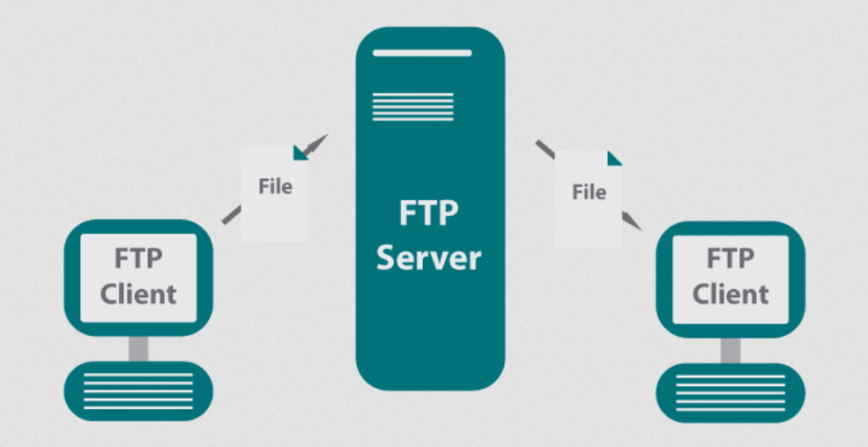FTP Servers : You may have heard of FTP, or File Transfer Protocol, but you might be unsure what it is exactly. At its core, the file transfer protocol is a way to connect two computers to one another in the safest possible way to help transfer files between two or more points. To put it simply, it’s the means by which files are securely shared between parties.
Benefits of FTP Servers
Although FTP is one way to transfer files, there are certainly other options. So, what is the benefit of using FTP over another means of transfer? Here are five benefits that companies can reap when they use FTP servers as opposed to other transfer options.
Security
Ultimately, the biggest benefit of using FTP servers over other choices is the level of security that these managed options can provide. FTPS and SFTP, both secure (encrypted) file transfer protocols, adds another layer of security to traditional FTP transfers, and many FTP servers support both FTPS and SFTP to better protect data that is shared. This gives you the added assurance that your sensitive files won’t fall into the wrong hands, as they are encrypted in transit.
When you send data, especially sensitive data, you may be concerned that other parties could intercept your transfer. In fact, anyone with the right tools or a little bit of knowledge could be capable of intercepting files. You may also be concerned that your transfers may be subject to viruses or other malware. Fortunately, when you use a managed FTP server, the expert vendor is responsible for providing the security necessary to keep data safe.
Control
Another benefit of using an FTP server is the level of control that you can gain over your data. Many FTP servers, especially industry-leading ones, offer granular access controls allowing your administrators to determine who can upload, download, edit, delete, or share files; and what folders they have certain permissions within.
Not everyone in your organization needs the same level of access to your files. For example, the CFO might need to see sensitive financial records, while your intern does not. The ability to control file and solution access based on individual user accounts can add even more security to your files.
Large File Sizes
Have you ever tried to send a file to a recipient via email, only to receive a message that your file is too large to send? If your organization deals with a massive amount of data, you won’t want your entire file sharing process to be interrupted due to files that are too large. Instead, you can use an FTP server that enables you to send gigabytes of data all at once.
Improved Workflow
Having a file sharing process that is not uniform across your organization can have a negative impact on your business productivity. Instead of sharing a single file at a time, you can send large amounts of data in an instant. You can also continue to work while large transfers are being made or schedule massive transfers for nights or weekends, so your workflow is not interrupted.
Also, having an FTP server gives you a single location to store all of your files. This reduces the amount of time your team spends hunting for a specific piece of data. It also reduces the chance for lost files.
Disaster Recovery
You never know when you may run into issues with lost or compromised data. When you choose a top FTP provider, your vendor can ensure that your files are never lost, from your everyday data to your most important and sensitive files.
When disaster strikes, like an interruption to your internet connection, a loss of power, or even an actual natural disaster, you don’t have to worry about losing work. Instead, your data is regularly and automatically backed up to another location. Then, if you need to restore your data, you can do so by coordinating with your FTP vendor.
How Do FTP Servers Work?
FTP servers are the solutions used to facilitate file transfers across the internet. If you send files using FTP, files are either uploaded or downloaded to the FTP server. When you’re uploading files, the files are transferred from a personal computer to the server. When you’re downloaded files, the files are transferred from the server to your personal computer. TCP/IP (Transmission Control Protocol/Internet Protocol), or the language the internet uses to execute commands, is used to transfer files via FTP.
Uploading Files
Personal Computer ——–> Server
Downloading Files
Server ——–> Personal Computer
FTP servers can be considered the midpoint between the sender and the recipient of a file. For FTP servers to work, you need the server address. Here’s an example of what this address may look like “ftp.examplecompany.net”. Sometimes, the server address will be given as a numeric address, like “12.345.678.90”.
Depending on the type of FTP server you use and the level of security that is needed, you may have to input a username and password. Some FTP servers allow for anonymous connection, which does not require you to enter a name or password to gain access.







